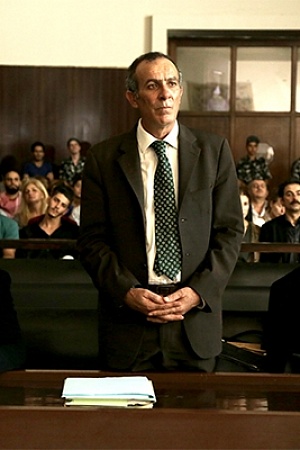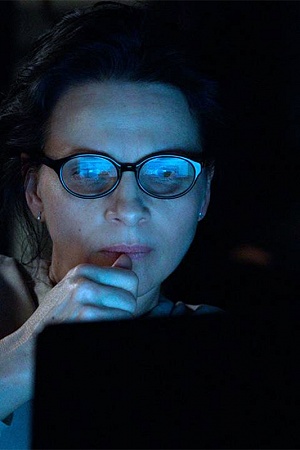The Zone of Interest

In Martin Amis’s novel The Zone of Interest (2014), Auschwitz Commandant Paul Doll asserts that to meet the objectives of the Reich it is necessary to ‘shut down a certain zone of the mind. I must accept that we have mobilised the weapons, the wonder weapons, of darkness.’ Doll is not a man seeking to absolve himself. Rather, he attempts to explain his dilemma, lamenting not so much the moral nightmare into which he has been thrust, but the bureaucratic one: how to balance the Reich’s need to exploit the prisoners for their labour with the desire to eradicate them as quickly and efficiently possible? ‘The Christian system of right and wrong, of good and bad,’ he muses, ‘is 1 we categorically reject … There are only positive outcomes and negative outcomes.’
In his film adaptation of The Zone of Interest, writer-director Jonathan Glazer has adopted neither the plot nor the characters of Amis’s novel. He has also eschewed its satire (the novel convincingly veers between the abject and Pythonesque). What Glazer instead embraces, and forcibly so, is the novel’s setting – the Auschwitz death camp, along with the associated administrative offices and living quarters for Nazi personnel, comprise the ‘zone of interest’ of the title – and that setting’s capacity to place side-by-side the unexceptional and the incomprehensible.
Continue reading for only $10 per month. Subscribe and gain full access to Australian Book Review. Already a subscriber? Sign in. If you need assistance, feel free to contact us.











Leave a comment
If you are an ABR subscriber, you will need to sign in to post a comment.
If you have forgotten your sign in details, or if you receive an error message when trying to submit your comment, please email your comment (and the name of the article to which it relates) to ABR Comments. We will review your comment and, subject to approval, we will post it under your name.
Please note that all comments must be approved by ABR and comply with our Terms & Conditions.